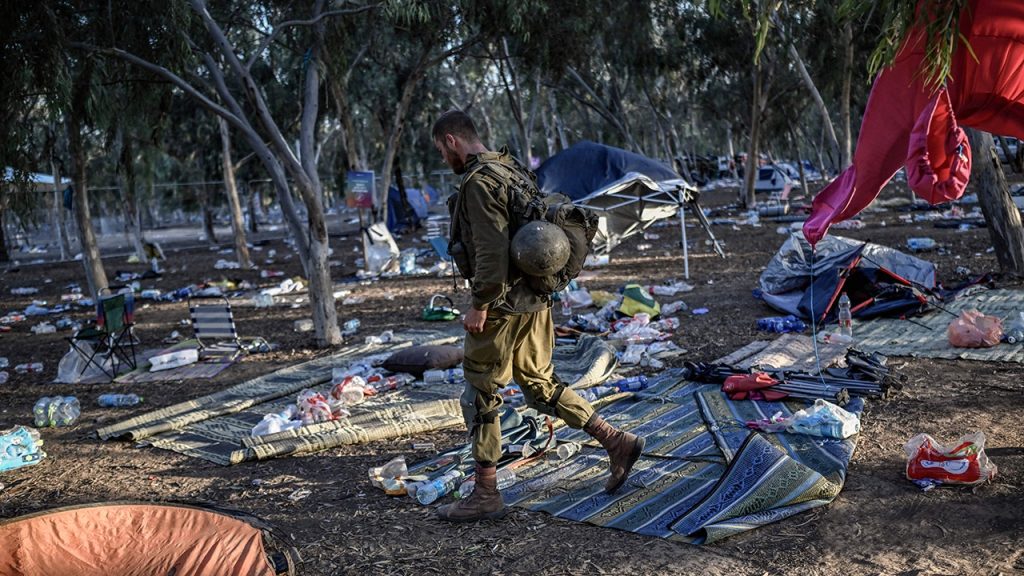The morning of October 7, 2023, will forever be etched in the memory of Israelis as a day of unimaginable horror. Hamas terrorists launched a brutal assault, not just on individuals, but on the very fabric of Israeli society – the family unit. The Idan family of Kibbutz Nahal Oz became a tragic symbol of this targeted destruction. Their eldest daughter, Maayan, was murdered in front of her family, while her father, Tzachi, was abducted. The horrific scene, broadcast live on social media, forced the world to bear witness to this unimaginable cruelty. Simultaneously, across various locations, families were systematically torn apart. Sixteen-year-old Rotem Matias hid under his dead mother’s body in Kibbutz Holit, texting his sisters the devastating news. In Kfar Aza, Roee Idan was killed shielding his 3-year-old daughter, Abigail, as his wife, Smadar, was also murdered before their surviving children’s eyes. These are but a few of the countless stories of families shattered, lives irrevocably altered, and a nation traumatized.
A new report, spearheaded by Dr. Cochav Elkayam-Levy and her team, meticulously documents the atrocities committed against families on October 7th. The report introduces the term “kinocide” to define the systematic targeting and destruction of family units. This unprecedented level of barbarity goes beyond the accepted norms of warfare, representing a deliberate assault on the foundation of human society. The terrorists didn’t just kill; they aimed to obliterate families, leaving children orphaned, parents bereaved, and communities devastated. The public nature of many of these atrocities, amplified by social media, added another layer of cruelty, transforming individual tragedies into a spectacle of terror designed to maximize the psychological impact.
The report reveals the calculated use of social media by Hamas, not only to document their crimes but to disseminate them globally. This “terror theater,” as coined by legal scholar Tehila Schwartz Altshuler, aimed to spread fear, incite further violence, and radicalize potential recruits. The live broadcasts of murders and abductions served as a perverse form of propaganda, showcasing the terrorists’ brutality and their disregard for human life. This amplified the terror exponentially, reaching far beyond the immediate victims and traumatizing a global audience. The strategic use of social media transformed the attacks from isolated incidents into a carefully orchestrated performance of horror.
Further research by Dr. Elkayam-Levy and her team revealed a disturbing pattern. Similar tactics of targeting families have been employed in conflicts worldwide, from the Yazidi genocide to atrocities in Syria, Sierra Leone, and Myanmar. This chilling realization underscores the need for a specific legal framework to address this heinous crime against humanity. The suffering of families targeted in such attacks transcends geographical boundaries and cultural differences, highlighting the universal nature of this horrific crime. The recognition of shared experiences across different conflicts emphasizes the urgency of addressing kinocide on a global scale.
The Raoul Wallenberg Center for Human Rights has collaborated with the commission to bring kinocide to the forefront of international legal discourse. Professor Irwin Cotler, former Minister of Justice of Canada and International Chair of the center, emphasizes that silence in the face of such evil constitutes complicity. The October 7th attacks, he argues, are not isolated incidents but a manifestation of a deeper global evil, fueled by antisemitism. The international community, he insists, must act decisively to prevent future atrocities. The urgency of this call to action is underscored by the escalating nature of such attacks and the potential for them to spread further if left unchecked.
The report, endorsed by international legal experts and human rights activists, calls for the urgent recognition of kinocide as a distinct crime under international law. Existing legal frameworks, Dr. Elkayam-Levy argues, fail to adequately protect families from this specific form of violence. She also expresses concern over the international community’s response, drawing on her previous experience facing denial and resistance to her work documenting sexual violence during the October 7th attacks. Her apprehension underscores the challenges in achieving international recognition for kinocide and highlights the need for continued advocacy and pressure on the international community. The weaponization of international law against Israel, she argues, further complicates the fight for justice and underscores the urgency of establishing a clear legal framework to address kinocide.


